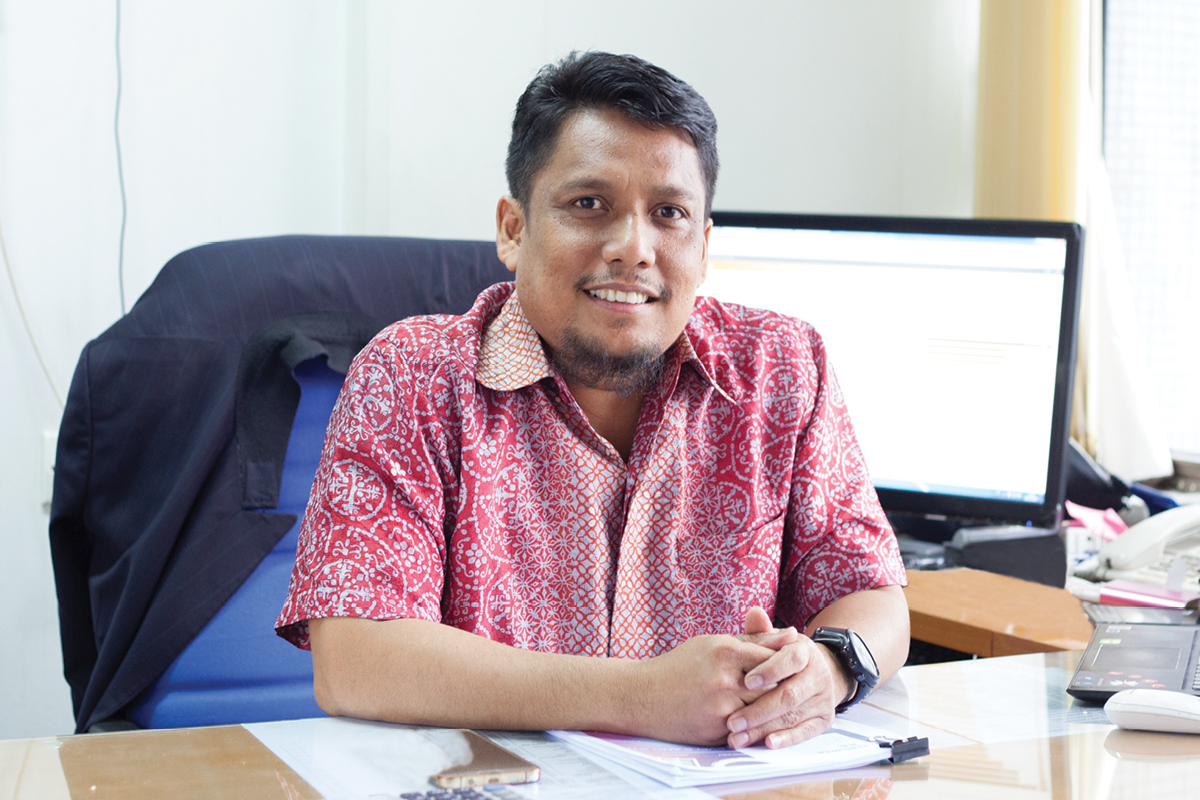Imagine a future where humans can be assessed and prescribed medication by an artificial intelligence-driven pharmaceutical ATM of sorts. As it turns out, we won’t have to imagine for too much longer.
This service is one of many included in the long-term vision of Millennium Pharmacon International (MPI), one of Indonesia’s very first pharmaceutical distributors.
Founded in Jakarta in 1952, MPI leads the domestic industry with a distribution network of 31 branches, three sub-distributors, three warehouses and 67 sales stations – all of which are maintained by thousands of dedicated and experienced employees.
Mohamad Muhazni Bin Mukhtar has served as President Director of MPI since October 2012. With a background in marketing, IT, accounting and system operations, he has worked in various management roles at London & Pacific Insurance, PLUS Expressways, Touch ’n Go, Faber Group, and Faber Facilities.

“I don’t come from a pharmaceutical background, so this role put me in a new industry and a new country with a strong legacy to uphold,” he recalls.
Both national and international manufacturers trust MPI with the distribution of their products – including diagnostic and medical devices, pharmaceuticals and food supplements – to drug stores, pharmacies, hospitals, supermarkets and retail shops throughout Indonesia.
Understanding the potential
“I knew that the Indonesian health and pharmaceutical industry was huge and full of potential,” says Muhazni.
Indonesia’s booming pharmaceutical market — the largest market in the ASEAN — is predicted to reach more than US$10 billion by 2021, according to business and information analytics company, GlobalData.
“But I also knew that the government would implement the National Health Insurance Scheme, Jaminan Kesehatan Nasional, in 2014, with a strong focus on generic medicines.”
“Given that almost 80% of the products we distributed at that time were prescription drugs, I knew something had to change for us to remain competitive in this high-volume, low-value environment.”
Muhazni immediately set about creating a strategic roadmap to diversify MPI’s product offering to include more generic medicines, dietary supplements, herbal products, nutritious foods and cosmetics.
“Companies across China, India and Europe want to enter the market and sell their products in Indonesia, and MPI is eager to capitalise on this by not only increasing our service offerings, but also by integrating our service and go far beyond distribution.”
“We’re now involved in marketing, licensing, registration and manufacturing, and we’ve created our own brand to compete.”
“Companies across China, India and Europe want to enter the market and sell their products in Indonesia.”
MPI’s ability to respond to the challenging dynamics of the pharmaceutical industry is highly dependent on its manpower. Therefore, the company has invested time and money in training and incentives for both managers and staff.
Culture of a nation, not a corporation
“Traditionally, MPI had a top-down culture, but when I arrived I told them that this could not continue. We now have the culture of a nation, not a corporation.”
“We need to be nimble and flexible in our decision-making, and this isn’t possible if we have to rely on instructions from headquarters. I empower my people to make their own smart decisions and I give them the tools to do so,” says Muhazni.
“This approach aligns with MPI’s corporate values – TOPIC. This stands for teamwork, openness, passion, integrity and care.”
“We instil these in our relationships with partners, suppliers and staff. They’re more than words – they’re actions that are visible in our day-to-day work.”
Muhazni is well aware that the Indonesian pharmaceutical industry will only become more competitive as international companies infiltrate the market.
Looking ahead, he says MPI will need to adopt an even more aggressive strategy to explore new market opportunities, improve operational efficiency and create further value for stakeholders.
The future of technology
Embracing technology is at the heart of this approach. “My mantra has always been operational excellence and I’m a believer in incremental change,” he says.
“In line with this, I’m looking for closer collaborations with my main suppliers and I’m focusing on IT and ecommerce to drive excellence.”
“Already, we have upgraded our operating system, implemented a mobile sales, inventory and collection solution, and adopted a business intelligence app to give our suppliers more detailed information as to where their sales are coming from.”
The pharmaceutical industry in Indonesia is growing by at least 10% annually, and Muhazni is ready to ride the wave of change.
“The potential of ecommerce is tremendous, and our industry looks to be heading towards a kind of online pharmaceutical portal that eliminates distributors and links manufacturers directly to customers.”
This presents a big challenge for me, and we feel it’s going to put a great strain on our margin. MPI has access to almost 31 core suppliers, 2,000 hospitals and 16,000 pharmacies, so we want to be able to integrate our processes with theirs to secure our place in the market.”
“My long-term ambition is to transform MPI into an AI-driven, healthcare ecosystem. The future of technology is evolving and almost unpredictable, so I don’t exactly know what this means yet, but that’s why it’s called long-term, right?”
“Our industry looks to be heading towards a kind of online pharmaceutical portal that eliminates distributors and links manufacturers directly to customers.”

